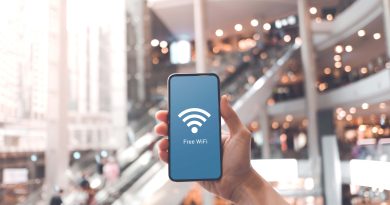What You Need to Know About VPNs
The Internet is an infinite source of information and entertainment, but it is also a cesspool of viruses, malware, and other infectious software. Installing a virtual private network (VPN) is an effective way to protect our families and ourselves.
VPNs come with a wide range of security and privacy benefits but it can vary from one brand to another. Part of Trend Micro’s Mobile Security for iOS, Content Shield is a comprehensive VPN that focuses on web threat and web content filtering.
So how does a VPN work? VPNs provide an anonymous and protected method to access the web by producing a secure connection between your computer or mobile device and a server run by the VPN provider.
Simply put, you are accessing the Internet through a third-party computer; and in effect, the websites you visit won’t be able to track your IP address – just the IP address of the VPN server.
On top of this, VPNs provide a secure and encrypted tunnel to ensure your privacy. This shields you from hackers that try to get into your banking accounts and other private information.
VPNs also prevent any malware from being downloaded into your computer, while Trend Micro’s Content Shield also stops you from accessing fake phishing websites and other similar malicious pages.
Going incognito or using a private browser is also not an equivalent to using a VPN tool
One thing users should take note about VPNs is they aren’t all created equally. Things such as the service quality of the provider, the features of the VPN, and the platforms supported – among others – should be taken into account.
VPNs also do not provide complete anonymity, especially if the authorities request for access to their data logs – they will likely hand them over. Also, VPNs aren’t a replacement for antivirus or computer security tools.
Going incognito or using a private browser is also not an equivalent to using a VPN tool. Any files you access or download, and any bookmarks you make are kept during a private browsing session. Private browsers also do not protect you from malicious websites or from downloading malware. Lastly, Internet service providers that have access to your IP address will also be able to keep tabs on your browsing activities.
Your IP address origin is spoofed by VPNs, obscuring the content you access, so your ISP or the site owners can’t track them – although VPN providers might record them. All ISPs can see is that you are connected to different Internet addresses, but not the information that is being exchanged between these sites.
What has mainly been discussed here are attributes of “cloud VPNs”, software that allows users to tunnel out securely and privately to cloud services online. Another type of VPN is one employed by Trend Micro’s Mobile Security for iOS – a part of the Content Shield function of the program.
Content Shield does not use an encrypted tunnel to connect to a VPN server; instead, it operates a minimalised web threat and filtering server right on the device where it is installed. This ultimately optimises the speed at which you can access websites.
In addition to its web threat protection properties, Content Shield also boasts of parental controls. It also uses highly effective protection from malicious websites, while also filtering and blocking inappropriate websites when your kids are using the Internet.
Content Shield intercepts search inquiries to ensure your family won’t access sites that could steal their private data or download malware to their devices. IT can also filter URLs based on presets made by parents, and by checking these websites, they can also speed up browsing based on the temporarily stored data.
Lastly, Content Shield is compatible across all iOS browsers and apps that load websites such as Facebook, Gmail, and more.
For more info on Trend Micro Mobile Security, click here.




